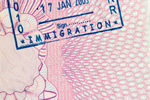Local Etiquette In The UK
 Local Etiquette In The UK
Local Etiquette In The UK
London is both the most stressed and the most laid-back region as regards social contact, and the most likely place for acceptance of international differences in social behaviour. At the same time, across the city and its dozens of boroughs there are many levels of society, determined usually by age, occupations and financial realities.
The common form of greeting is the handshake, and Britons in general may seem formal, stiff, private and unemotional until you get to know them on a personal basis. Direct communication between individuals of the same level is the norm, with understatement preferred to effusive language. Eye contact is fine unless prolonged and gender differences are rare nowadays.
Dress codes vary, and are important at higher levels of society as well as amongst the younger set including students. Wearing the latest in designer gear if invited for an upscale meal out or a dinner party at a business associate’s home makes the right impression, with the option of flowers, wine – preferably champagne – or Belgian chocolates as a gift.
At this level, conversation at dinner is usually kept to pleasantries and trivia, unless the host or hostess introduces a controversial subject. On a more informal level, just about everything including politics and possibly excepting religion is up for examination, making for lively evenings and a fresh exchange of views. On this level, a gift is optional, as is formal dress.
The traditional British meeting place is the pub, with strangers easily drawn into conversation, games of darts and other activities. Essential pub etiquette involves buying a round of drinks when it’s your turn, even if you’ve had one too many yourself. Dress codes are non-existent and conversation flows freely.
In regions such as East Anglia, the West Country, Yorkshire and Lancashire as well as Scotland and North Wales, incomers may not be regarded as residents until they’ve lived there for many years. Northern Ireland is different again, although the Irish are known for their friendliness. Subjects discussed at your peril in Northern Ireland are religion and the ‘troubles’ – the century of violence between the Protestant and Catholic communities on the island.


